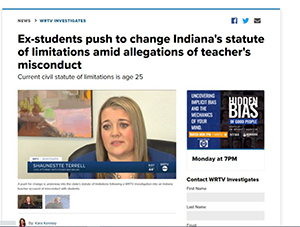By: Shaunestte Terrell, Attorney News of a federal investigation into sexual abuse claims within the Catholic Church in New Orleans has gained ... Read More
sexual abuse
Sexual Assault: How the Burden of Proof in a Criminal Prosecution Can Affect a Civil Lawsuit
By: Amina A. Thomas, Attorney The New York Times’ Monday morning headline this week was a report on How Rape Cases Get Dropped. The article ... Read More
Sexual Assault Statutes of Limitations: Archaic, Arbitrary, Absurd Deadlines
By: Shaunestte Terrell, Attorney Anyone who’s ever taken in an episode of Law & Order (or even Night Court back in the day) has heard that ... Read More
Filing Deadlines Vary for Boy Scout Sexual Abuse Claims
**UPDATE NOVEMBER 2020** The deadline for filing claims against the BSA expired on November 16,2020 @ 5:00 EST. Cohen & Malad, LLP is no longer ... Read More
Thousands of Boy Scout Members Allege Sexual Abuse
**UPDATE NOVEMBER 2020** The deadline for filing claims against the BSA expired on November 16,2020 @ 5:00 EST. Cohen & Malad, LLP is no longer ... Read More
How to Help Sexually Abused Children Suffering from PTSD and Other Psychological Injuries
By: Gregory L. Laker, Attorney Tragically, we have seen an alarming increase in the sexual abuse of Indiana children recently. We shook our head in ... Read More







